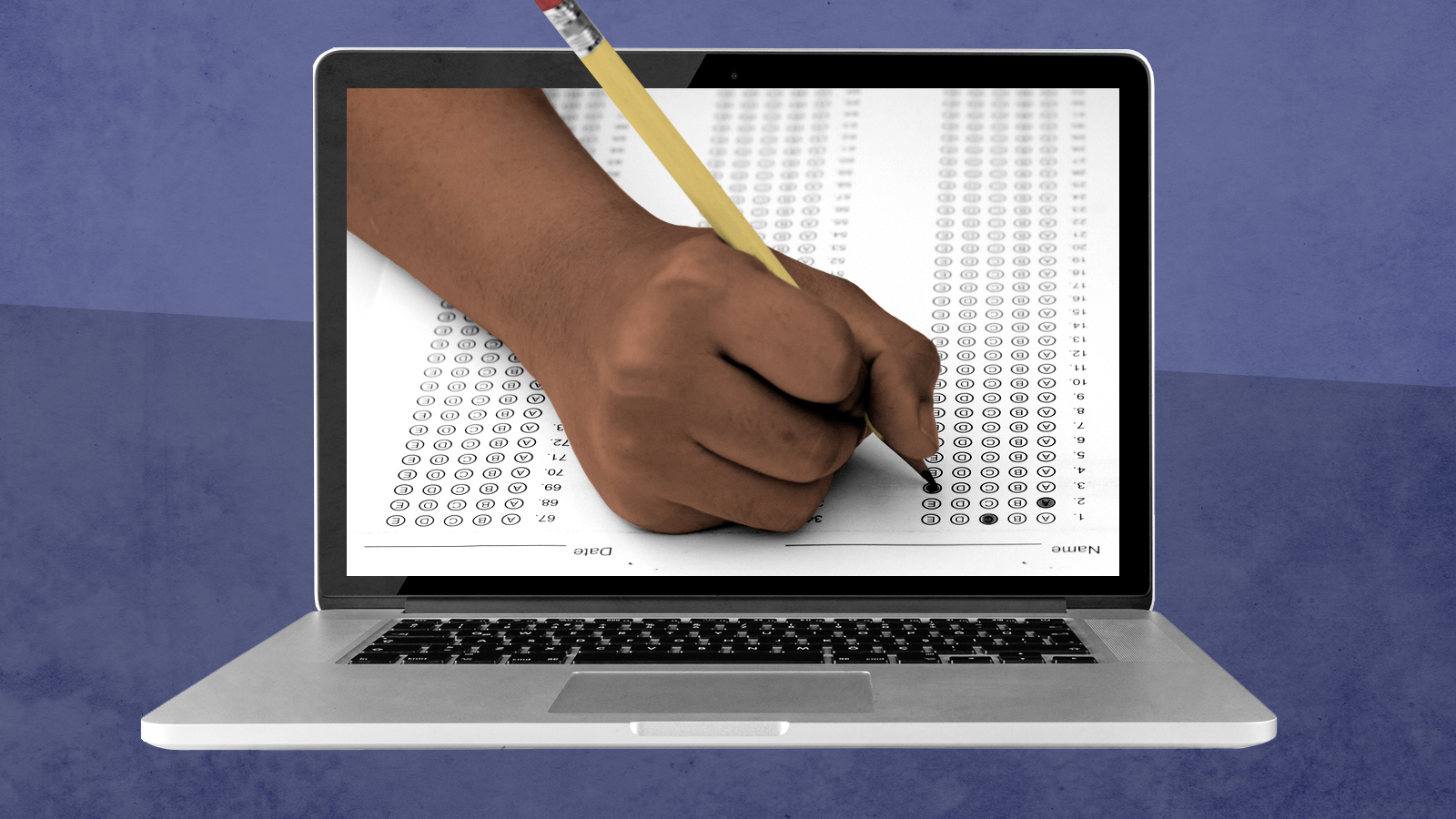Making the SATs digital won't make them fair
College Board somehow managed to give the playing field yet another bump


A free daily email with the biggest news stories of the day – and the best features from TheWeek.com
You are now subscribed
Your newsletter sign-up was successful
The last time I used a No. 2 pencil for anything more extensive than marking a wall to hang a picture was undoubtedly on my high school SAT exam. For generations now, the test's bubbled answer sheets and stern instructions (remove everything from your desk except your No. 2 pencils ... ) have been the stuff of recurring nightmares for those of us who ran the cumulative gauntlet of American education — as well as the stuff of debate for educators, whose claims about the dubious value and fairness of the tests reached a crescendo during the pandemic.
With more than 1,800 schools deciding not to require standardized test scores for 2022 admissions, the powerful College Board — which organizes and administers the test — likely saw the writing on the wall. On Tuesday, it announced plans to go entirely digital as well as to cut the test down from three hours to two hours, a choice that means "shorten[ing] reading passages," The New York Times reports.
Whether well-intended or merely strategic, the SAT's bid for relevancy is not a victory for fairness. On the contrary, it will directly disadvantage low-income students, exacerbating exactly the kinds of inequalities that landed the test under critique in the first place.
The Week
Escape your echo chamber. Get the facts behind the news, plus analysis from multiple perspectives.

Sign up for The Week's Free Newsletters
From our morning news briefing to a weekly Good News Newsletter, get the best of The Week delivered directly to your inbox.
From our morning news briefing to a weekly Good News Newsletter, get the best of The Week delivered directly to your inbox.
The broader shift to digital test-taking has been in the works for years — so the problems are well recorded. In 2018, for example, Oklahoma City opted out of using digital tests because the city did "not yet have enough equipment and its older buildings are prone to power and network failures," wrote The New York Times. Additionally, there were questions about how "those likely to be in jail, juvenile detention, or a mental health facility" — which could be up to 100 students on a given day — could take digital tests, since some such facilities don't allow computers.
While problems like severe computer shortages in school districts are likely a little less widespread after the implementation of remote learning during the COVID-19 pandemic, future SAT test-takers will be allowed to use their own laptops and tablets instead of school-owned machines at test sites. That will give an unfair advantage to wealthier students who can afford such devices and thus take the test on a familiar computer. That might seem like a small thing, but on a timed test where pacing is especially important, it adds a disproportionate complication for students working on a borrowed machine.
Perhaps counterintuitively, shorter reading sections also advantage higher-income students and districts. While reading passages are intended to test a student's comprehension skills, "whether or not readers understand a text depends far more on how much background knowledge and vocabulary they have relating to the topic than on how much they've practiced comprehension skills," The Atlantic explains. "That's because writers leave out a lot of information that they assume readers will know."
A briefer passage may sound "easier," but that's only true if students already know about the topic at hand:
A free daily email with the biggest news stories of the day – and the best features from TheWeek.com
Students from less educated families are usually the ones who are most handicapped by gaps in knowledge. ... Ian Rowe, who heads a network of charter schools serving low-income students in New York ... provided a real-life example during his remarks. A sixth grader at one of his schools was frustrated that a passage on a reading test she'd taken kept repeating a word she didn't understand: roog-bye. The unfamiliar word made it hard for her to understand the passage. When Rowe asked her to spell the word, it turned out to be rugby. [The Atlantic]
Longer reading passages, by contrast, offer more context clues for readers, leaving students of all backgrounds with at least a slightly more even starting point.
Whether to get rid of standardized tests or not is a complicated question with many different sides to consider. But when the defense of such tests largely falls on the argument that they help to level the playing field — only for them to make an inequitable situation even worse — there's plenty of reason to believe that their end is (and should be) nigh. In fact, you might even pencil it in.
Jeva Lange was the executive editor at TheWeek.com. She formerly served as The Week's deputy editor and culture critic. She is also a contributor to Screen Slate, and her writing has appeared in The New York Daily News, The Awl, Vice, and Gothamist, among other publications. Jeva lives in New York City. Follow her on Twitter.
-
 How the FCC’s ‘equal time’ rule works
How the FCC’s ‘equal time’ rule worksIn the Spotlight The law is at the heart of the Colbert-CBS conflict
-
 What is the endgame in the DHS shutdown?
What is the endgame in the DHS shutdown?Today’s Big Question Democrats want to rein in ICE’s immigration crackdown
-
 ‘Poor time management isn’t just an inconvenience’
‘Poor time management isn’t just an inconvenience’Instant Opinion Opinion, comment and editorials of the day
